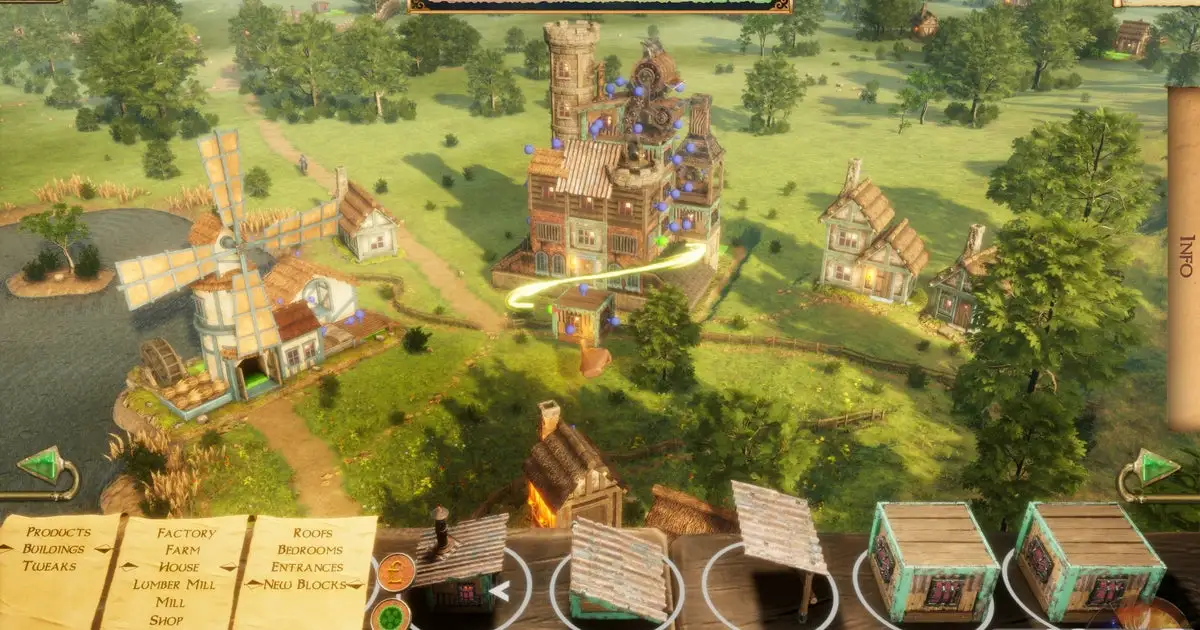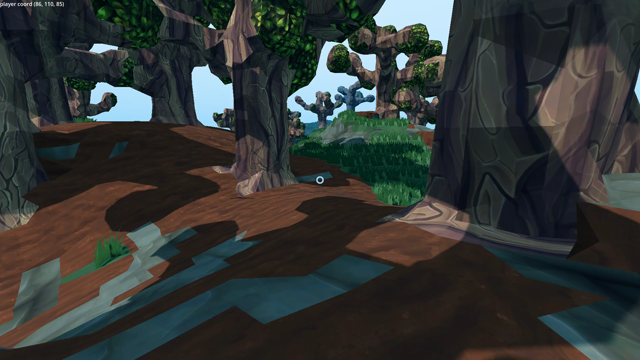NoisyOwl [he/him]
I make indie games.
- 15 Posts
- 13 Comments

 3·5 months ago
3·5 months agoThis is great, love me some esolangs.
Weird the subtitles insist on calling brainfuck brainfog though.

 10·5 months ago
10·5 months agoHey this is really cool.
I’m sure people will use it to make politicians say misleading things or whatever.
But I’m excited about people being able to have animated advisor portraits in indie games.

 3·5 months ago
3·5 months agoNice ideas! Some already on my list, so we’re clearly on the same page.
Those last two combine in a cool way. If you have a machine that gives better outputs and requires faster inputs the longer it runs, then wiring all of its inputs to production boosters is good, but also hard because this sort of thing will encourage a very cramped design already.

 4·5 months ago
4·5 months agoSince this is happening inside a multiplayer game, where other players might not be doing automation gameplay, I want to be mindful of how much server horsepower an automation player uses. So giant Factorio-style megafactories aren’t a good fit (It’ll still be possible as a self-directed challenge, especially if you’re running a single player server, but it’ll need a hefty computer since I doubt I’ll optimize it as well as Factorio.)
Which means I can’t do Factorio’s thing where an X requires 10 Y requires 10 Z and the massive scale causes problems you need to work through, so I need to add complexity elsewhere to make factory play still challenging. Machines that require inputs from multiple different transport mechanisms are one way to do that. Another might be time-sensitive parts.
I’m up for suggestions on more ways to make particular machines a nuisance to work with.

 7·5 months ago
7·5 months agoI’m working on a 3D voxel game, where I plan to have automation mechanics eventually, so this has been on my mind.
In the current (very possibly changing) plan, the first automation tier will be conveyors that go straight into buildings, but later materials will be too delicate for conveyors and need to use pneumatic pipes, and the final tier will include materials that must be handled with Opus Magnum style swinging arms (which are also inserters).
I like changing the transport system is the best way to do progression in one of these games, because it’s directly tied to the map, and thus has the most options for subtlety and cascading changes. And having multiple separate systems feeding into the same process is of course good for adding complexity.

 9·1 year ago
9·1 year agoCube 2 / Sauerbraten is apparently still being updated.
It’s been like 15 years since I played it lol. But I remember it being a good Quake/Unreal style deathmatch shooter with a really sick level editor.

 10·1 year ago
10·1 year ago you can do it
you can do it  you can do the thing
you can do the thing 

 1·1 year ago
1·1 year agoLudum Dare start dates are the greatest jump scare in all of gaming.
I never know when those things are coming.

 3·1 year ago
3·1 year agoAir is a compressible fluid, so ultimately you’ll need Navier-Stokes, but actually figuring out how to translate those equations into code is infamously annoying, so definitely check out an existing solution instead of trying to implement from the equations. Foster & Metaxas is an old a grid-based solution. Theirs is designed for incompressible fluids (water), but I think it should be fine if you raise β₀.
There’s a lot of math in the paper, but it’s easier to implement than it looks (each step, run [2] on every cell once, then run [6] [7] [8] on every cell ~6 times), and it’s mostly just transcribing equations. It’s super fiddly though, just incredibly fiddly, expect to have to spend a lot of time debugging.
There are probably suitable simpler solutions too though, so definitely spend some time searching for them (or just copyable implementations of Foster & Metaxas) before diving into that.
Worst approximation of pi I’ve ever seen.
I don’t know about tear, rip has some very worrying pronouns.

 4·1 year ago
4·1 year agoThis sounds like someone trying to come up with the most expensive solution then working backwards for why you’d want it.




It’s trash as an idea generator.
The only useful thing I’ve gotten out of a (text) AI is asking it to guess functions of keyword mechanics in games. Like I was designing personality traits for AI leaders in a strategy game, and had a dozen bad candidates for “over produces defenses.” So I told ChatGPT to try to guess the meanings of bunkerist, hoxhaist, prepper, turtle, protectionist, survivalist, isolationist, guardian. Which did narrow it down to bunkerist, turtle, and protectionist (note that this is literally wrong in the case of protectionist). Normally I’d try to poll a bunch of random people for this sort of thing, and try to avoid anyone who’s trying to be clever. So it did save some work there.
It won’t come up with anything useful going the other way around though (“list some possible names for traits of AI leaders in a strategy game”). Like I said, it doesn’t work as an idea generator.
I guess in general it’s probably useful if you’re in a situation where you need to make sure your writing is very very clear. If ChatGPT can correctly summarize what you wrote, it’s probably safe for people who are distracted or bad at reading or whatever.